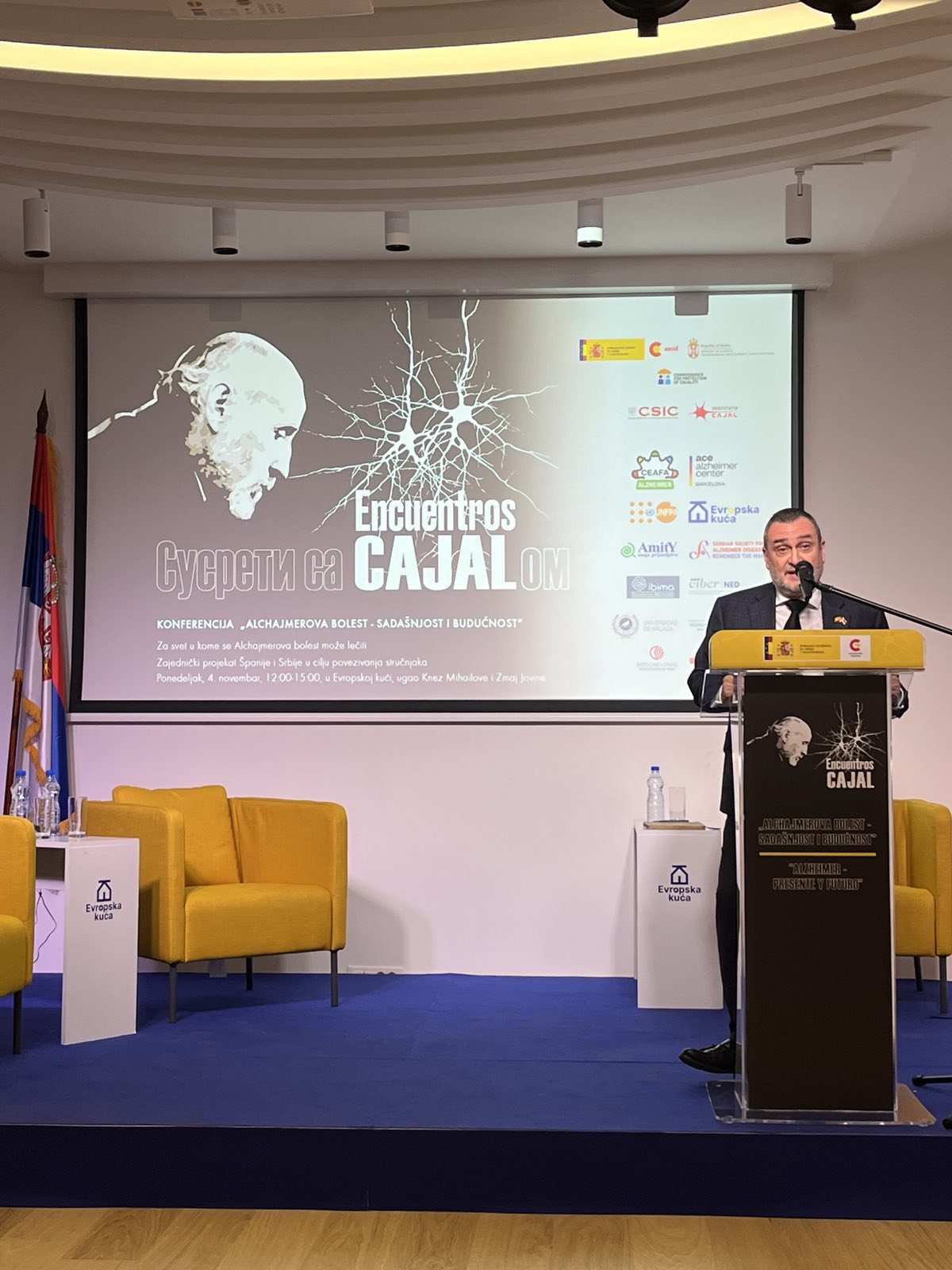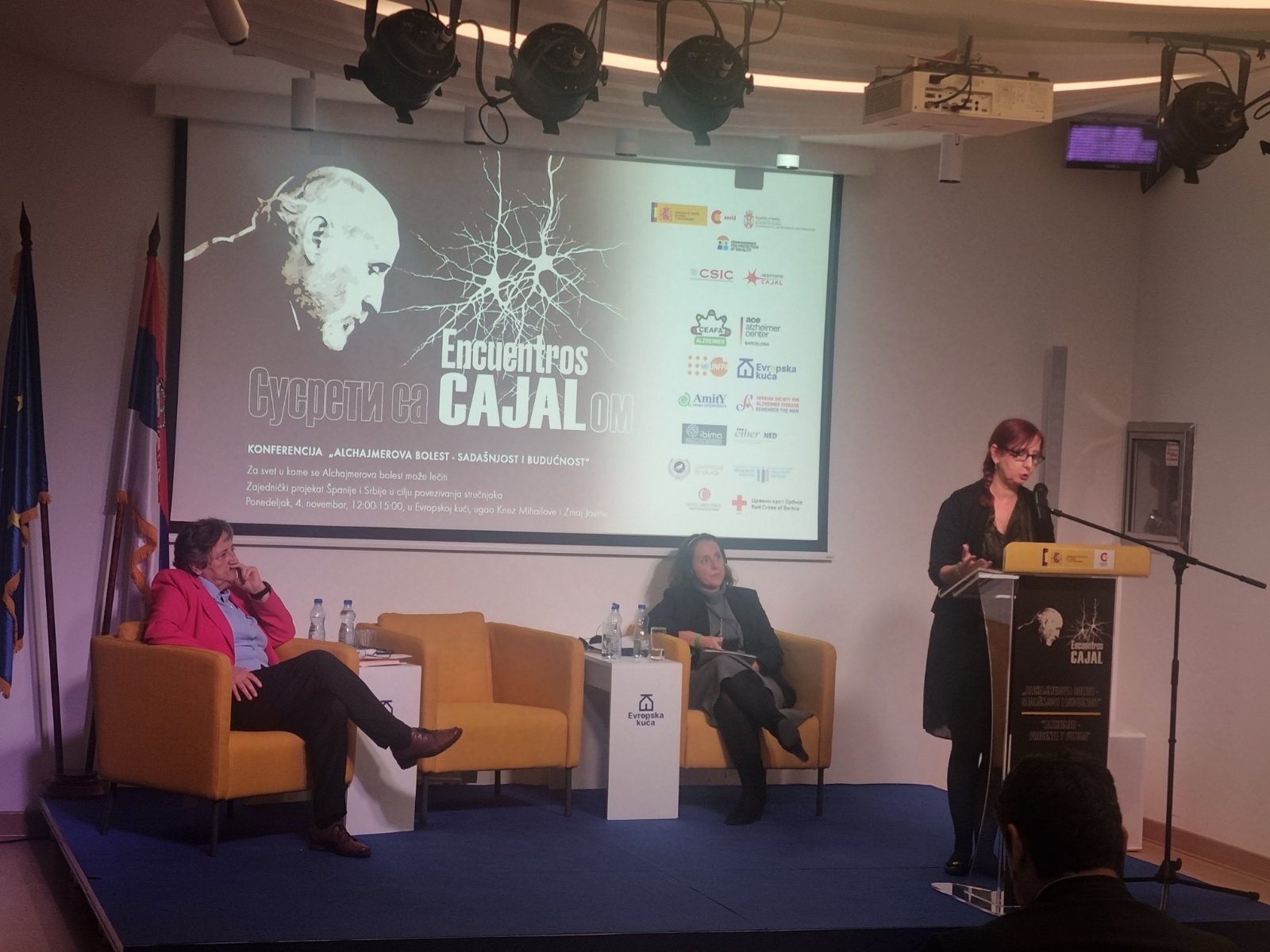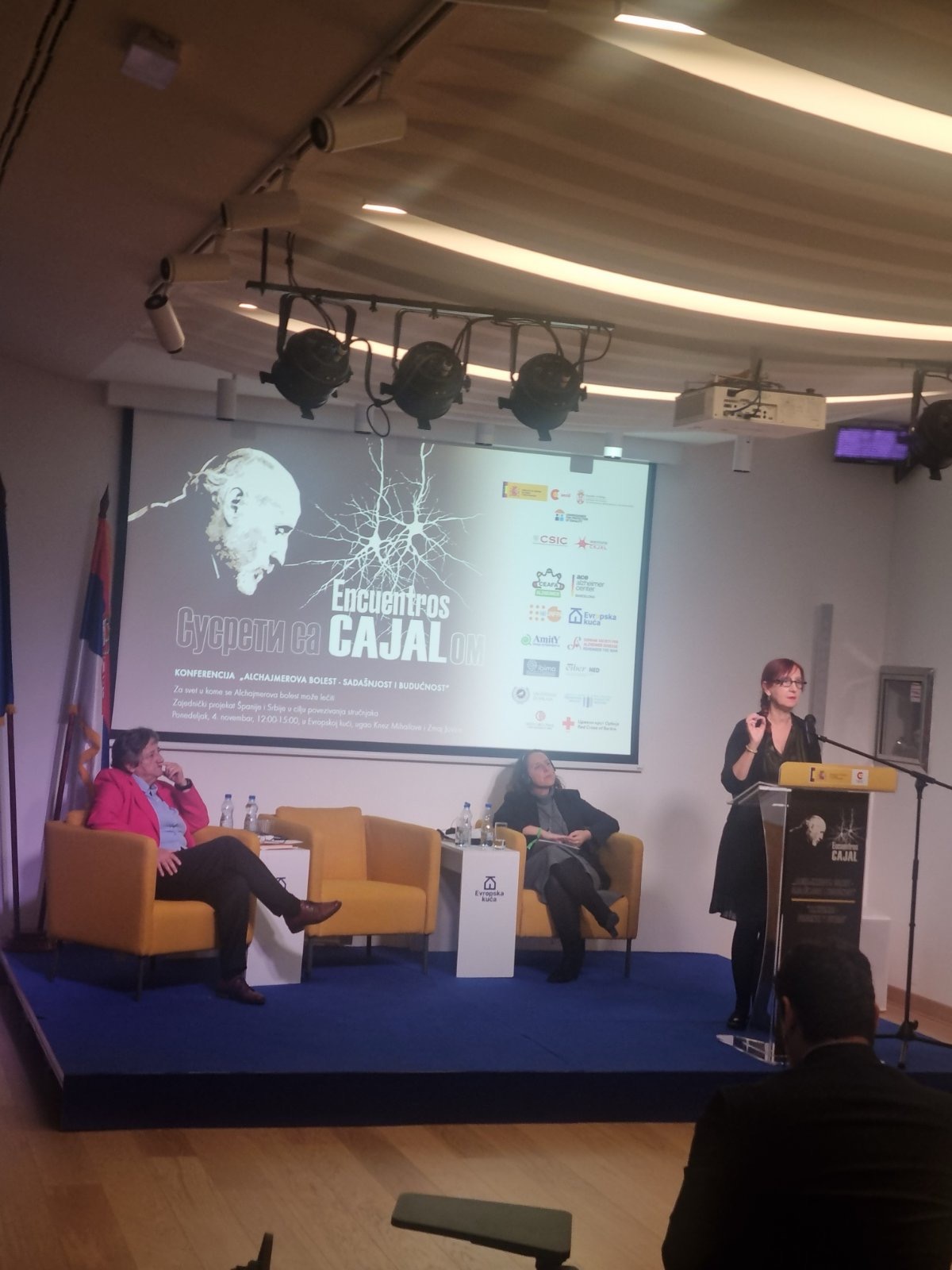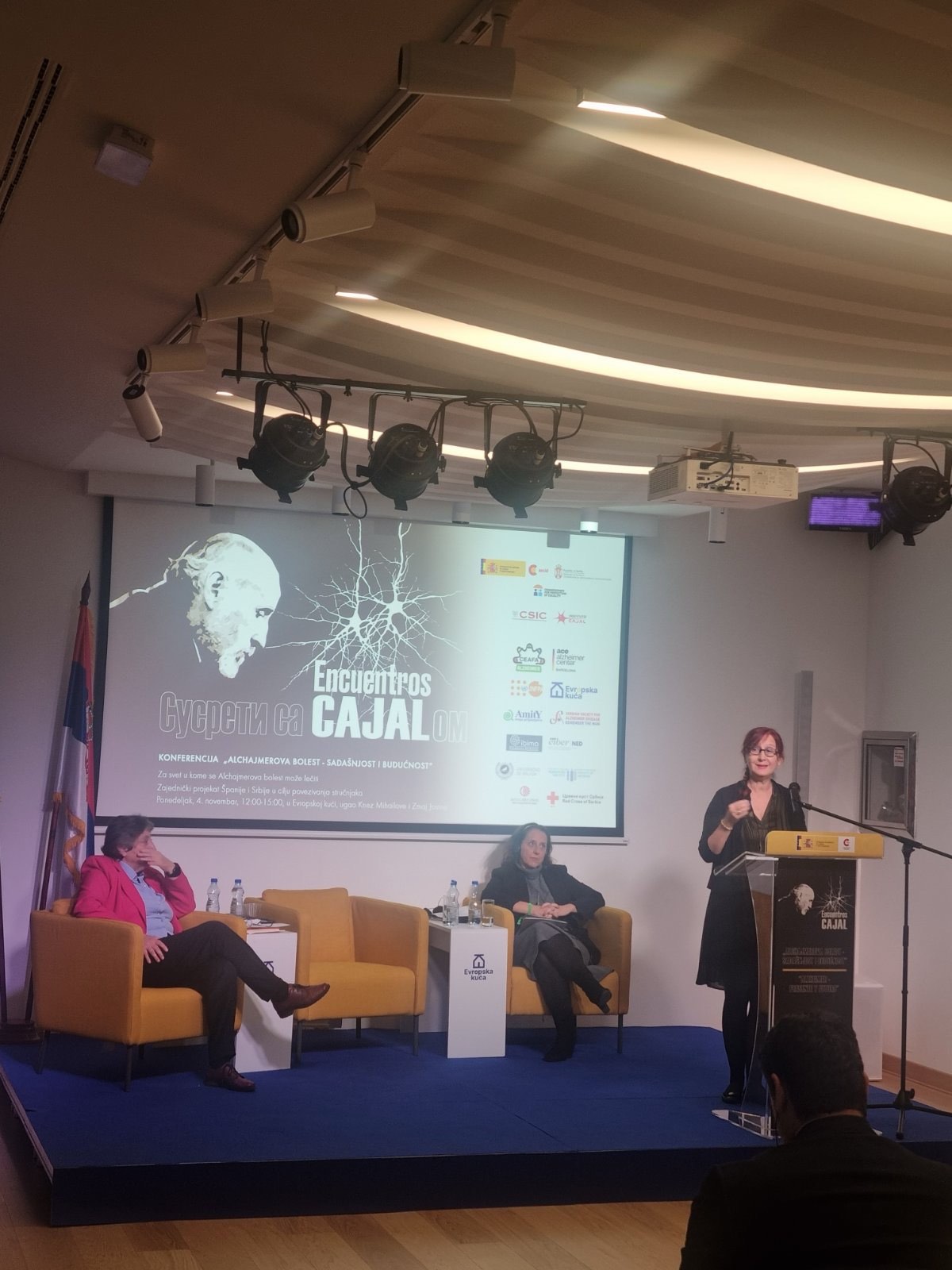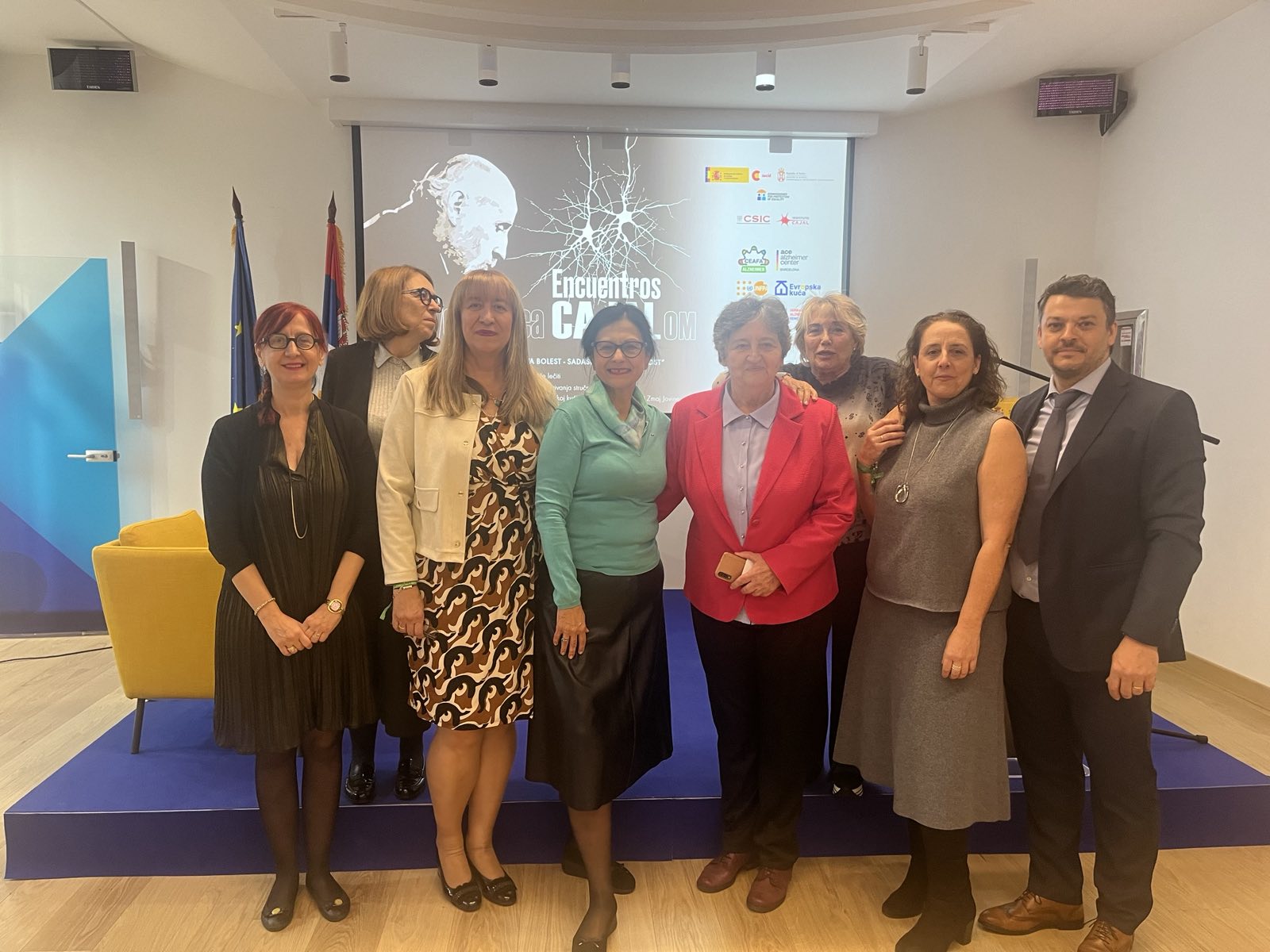"ALZHEIMER'S DISEASE - PRESENT AND FUTURE"
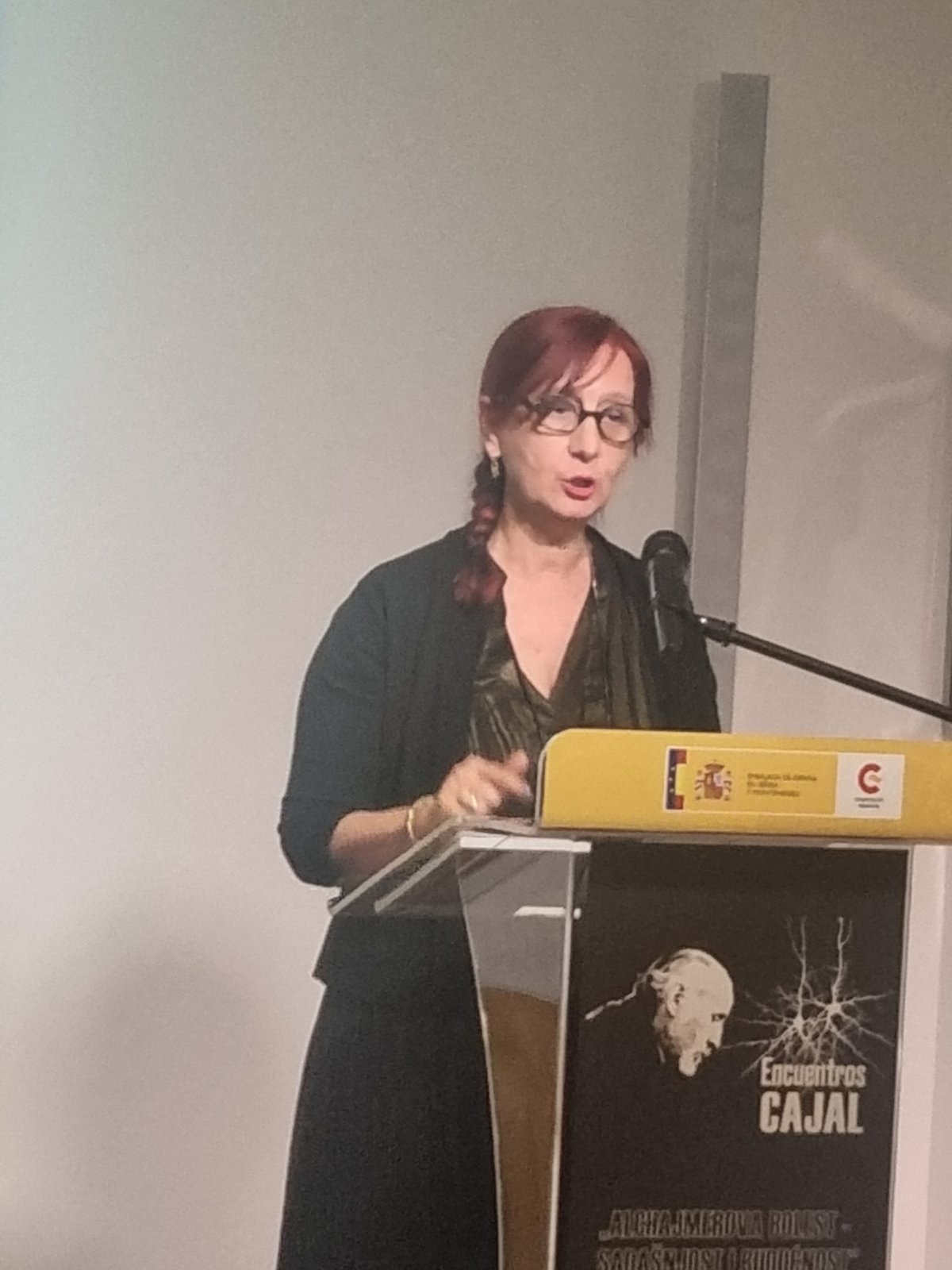
For a world where Alzheimer's disease is treatable
On Monday, November 4, 2024, the Spanish Embassy organized a conference at the European House titled "ALZHEIMER'S DISEASE - PRESENT AND FUTURE". The goal of this conference was to connect Spanish and Serbian experts through two panels, the first of which was strictly scientific in nature, while the second presented activities aimed at individuals diagnosed with dementia and their families.
The conference also served as a joint Spanish-Serbian debate on Alzheimer's disease, discussing both the scientific and research aspects (current studies) as well as the palliative and socio-assistential dimensions of the illness.
Considering the specific topic — Alzheimer's — this conference is part of efforts to promote gender equality within the framework of Spain's Feminist Foreign Policy, actively supporting and promoting the participation of women. The event had significant female representation.
In addition, a platform for early detection of the disease, developed by the leading Alzheimer's foundation in Spain, ACE Barcelona, was presented.
At the conference, the Red Cross of Serbia representative, Natasa Todorovic, presented the "Innovative Community Services" project as an example of good practice, which was implemented in Sombor and Pirot. She emphasized the challenge of adequately addressing the issues of demographic aging and the increasing number of people with dementia, especially in the context of insufficient services for those with dementia and the challenge of migration of formal caregivers, particularly to Western European countries.
She noted that, globally, we still rely on informal caregivers. However, it’s important to recognize that they are not an unlimited resource. There are fewer of them due to changing family structures, and they also face increasing obligations, including professional responsibilities, caring for children, parents, and even grandparents. Many also migrate, facing the challenge of providing remote care. Informal caregivers lack support; there are no day centers, respite services, or training for family members.
A good model for community services for people with dementia is the "Innovative Community Services" project. This project was funded by the EU and the Austrian Development Agency. It exemplifies good collaboration among all stakeholders, with the Red Cross conducting activities for both people with dementia and informal caregivers, the local community, and the Republic Institute for Social Protection involved in the activities. New technologies played a crucial role, as support was provided through tablets with cognitive exercises for people with dementia, making innovation a significant aspect of the work. Finally, the University of Vienna monitored the results to assess how cognitive exercises on tablets slow the progression of diagnosed dementia.
Dementia takes away the memories, the entire previous life, the families, independence, and dignity of millions of people, but we also lose something—it takes away the people we know and love. The modern world is still not a place that allows for dignity for those suffering from dementia and their families; they are still invisible, still alone. We have not managed to provide them with support, community services, respite care, or enough training. We do not use new technologies to improve health to the extent we should. That is why we must restore their dignity—it is high time, the future is now.
